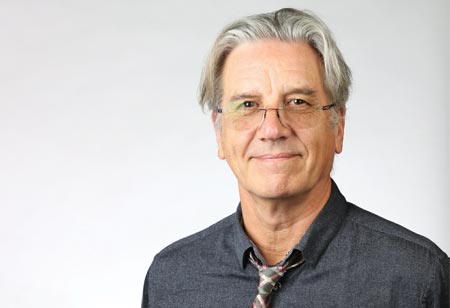Thank you for Subscribing to Healthcare Business Review Weekly Brief

Cancer Diagnostics from a patient advocate's perspective
Healthcare Business Review
Since its inception in 2013, Simon has led Teen Cancer America, the only national charity working directly with hospitals to advise, support and fund them in developing specialized programs and facilities for adolescents and young adults with cancer. The charity is built on the successful model of Teenage Cancer Trust, UK where Simon was CEO for 13 years before moving to the US.
His early career involved managing substantial social and healthcare services in the fields of Learning Disability and Mental Health. Awarded an honorary Doctorate in Education by the University of Coventry for the advancement of AYA professional education, Simon has developed an international reputation for success in bringing about change within traditionally structured health systems.
For decades, researchers have contributed papers, medications and ingenious tools to combat life threats like cancer. Most solutions target post-diagnostic stages, leaving a big part of treatment aside. Ridden by this lack of focus, teenagers take the blows of these inattentive measures. They lack the support of early diagnosis, making equal care paramount to researchers. Here, Simon Davies sheds light on the latest medical innovations channeling accurate and on-time detection in teenagers. He eagerly welcomes government intervention, encouraging the state officials to collaborate with independent facilitators and combat demographic vulnerabilities in healthcare.
Synergy Of Pediatric And Adult Medications
When Roger Daltrey, the lead singer of the legendary British Rock Band, The Who, founded Teen Cancer America with rock partner Pete Townshend in 2013, it was on the back of two decades of success with their British charity Teenage Cancer Trust. Embracing the concept of combining pediatric and adult cancer medicine to these entrepreneurial yet often conservative shores was going to be challenging.
This underserved group of teens and young adults, with poorer outcomes than their younger and older counterparts, suffer primarily from rare and difficult-to-treat cancers. Their cancers can be adversely affected by the growth spurts and hormonal changes that are common at this age.
There is evidence of drugs, mostly researched and developed for the very young or very old, being less effective with this age group. The charity now boasts 62 adolescent and young adult (AYA) cancer programs across the country and there has been a ‘relative’ (but could do better) increase in AYA cancer research that will help this group.
Despite this progress, one of the most common terms in the cancer journeys of these young people is late or misdiagnosed.
Proactive Diagnosis
Young people are in part to blame. They are, as we all know, the least likely to take themselves to see a doctor or share a health concern with a parent. However, there are other more significant reasons such as the lack of experience of front-line physicians who do not frequently see cancers in the young during a whole career.
Symptoms appear that could be something more common. Bone cancers, for example, a painful limb, growing pains or sports injuries; leukemic weight loss and exhaustion which is not unlike a ‘fasting’ teen; brain tumor headaches like a migraine or a stress, and anxiety-related condition, can all make diagnosis challenging.
This new era of research that can identify cancers at an early stage and science that is going even further by predicting susceptibility to cancer is the most exciting news for decades, perhaps ever:
• Liquid Biopsies, for example, are among the most dynamic, enabling the identification of cancer type and location at a very early stage. Allowing treatments to be directed to specific areas is dramatically reducing the toxic effects of the old ‘shotgun approach’ of traditional chemotherapy.
• Cancer vaccine development is already having an impact on certain variations, even being able to tackle metastatic disease with individually designed vaccine payloads.
• The use of AI in diagnostics such as spotting cancers in scans and x-rays that the human eye of the most experienced professional could miss.
"This new era of research that can identify cancers at an early stage and science that is going even further by predicting susceptibility to cancer is the most exciting news for decades, perhaps ever"
• It is important to understand the importance of the microbiome and how the gut itself could play a preventive role.
I am sure there is much more to come in this unprecedented age of cancer research.
But, will we respond appropriately to take advantage of these breakthroughs and ensure accessibility and equity in health?
Awakening A Unified Response
Human papillomaviruses (HPV) vaccines have been around for two decades, and they are now proven to prevent a suite of cancers, not just cervical cancer. But in the US, the take-up is abysmal and there is no national health policy to make HPV vaccines an ‘opt-out’ option instead of the current ‘opt-in’.
Public and physician education is severely lacking, and the US now lags other nations, some of whom have virtually eradicated these cancers. What a missed opportunity and a waste of young lives!
Similarly, screening for breast and colorectal cancers must wait until the cancer rates and deaths mount and move down the ages before access is given.
Insurance companies, despite the enormous savings in early diagnosis, are reluctant to give access to new testing because of short-term costs. Governments are even slower to act.
And so, amid the excitement I feel for what is possible, I genuinely fear that we will again let our people down. And as usual the most vulnerable in our society will suffer while those with wealth and good insurance will have the pick of the best prevention and survival options.
So, I ‘throw down the gauntlet’ to all stakeholders. Seize these golden opportunities and let’s turn this around. In the words of Roger Daltrey, “Good health for our young should be a right, not a privilege”.









